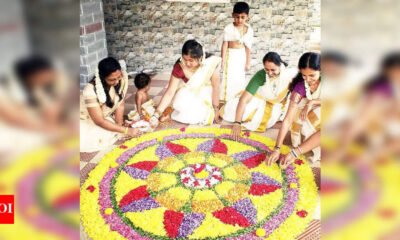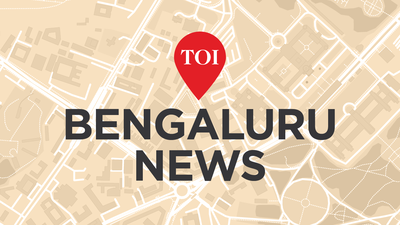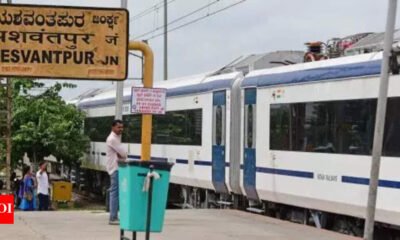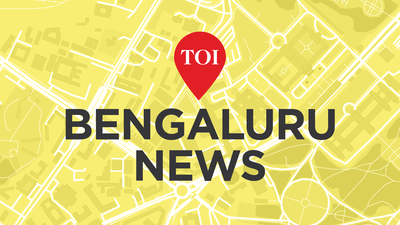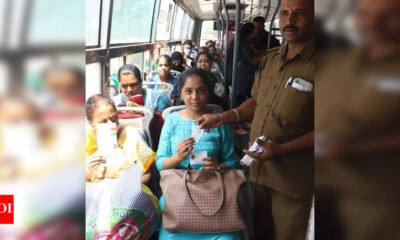Travel Guides & Articles
Tortured, locked up for 8 days: Dubai travel agent kidnapped in Bengaluru after club call from friend ‘Mahima’; accused demanded Rs 2.5 crore ransom | Bengaluru News
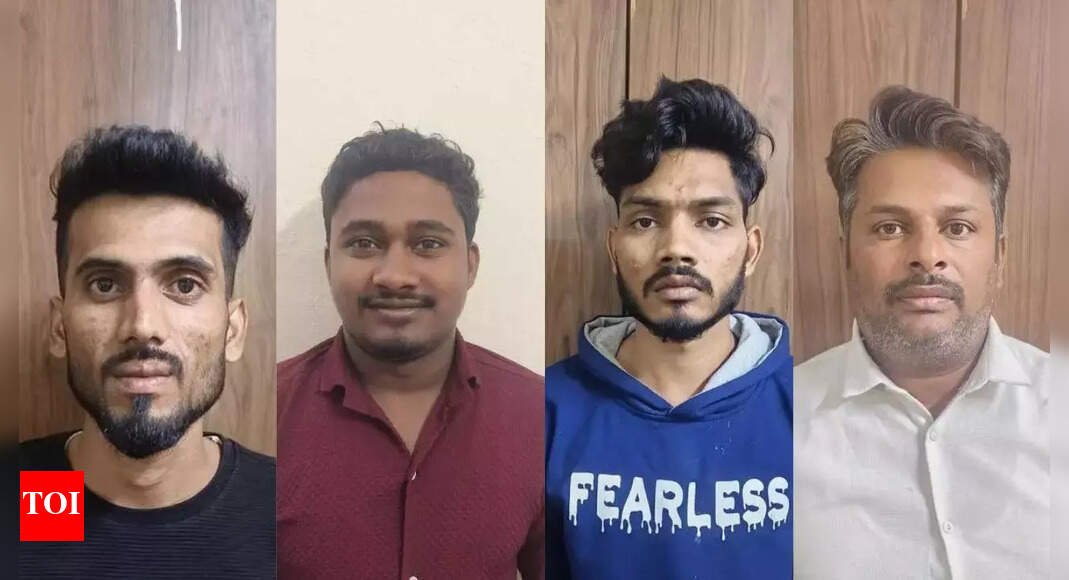
BENGALURU: It had all the trappings of a gripping kidnap thriller: He received a call and the woman told him to step out of the pub and get into a car waiting outside with its headlights blinking. Eager to meet her, he stepped out, spotted the vehicle, and confirmed with the driver whether she had sent it. The driver nodded and he got in. But instead of heading towards Koramangala as expected, the cab took a different route. That’s when a sense of unease crept in. His fears came true moments later when two men suddenly entered the car and began assaulting him. It was clear now: he was taken!
That marked the beginning of the ordeal for 37-year-old Lawrence Melwin, a native of Kerala, who worked as a manager in a travel agency in Dubai. According to Ashoknagar police, Melwin had come to Bengaluru to visit his family staying at Basavanagar. On July 14, Melwin visited a club in Indiranagar and it was when he received a call from a woman named Mahima Watt stating he could meet her and she would send a cab to pick him up.
Poll
Do you think the police acted quickly enough in this kidnapping case?
“I stepped out of the club around 3am. A cab with blinking lights stopped for me as Mahima had said. But two men later entered, assaulted me, and grabbed my bag, which contained Rs 1 lakh and two iPhones. They forced me to share the passwords of the phones,” Melwin told police. He was later driven to a service apartment and locked in the flat.“A third man entered the flat and demanded Rs 50 lakh to release me. I told them that I could arrange Rs 20 lakh, but they refused. They locked me in a room and provided food,” Melwin narrated.Meanwhile, the miscreants made Melwin send voice messages from his phone to his family members, saying he was in Kodagu. The kidnappers allegedly upped the ransom to Rs 2.5 crore and threatened him with dire consequences if he failed to pay up. On July 22, Melwin saw hope when a woman in the neighbouring flat responded to his cries for help. “I shared my sister’s mobile number with her, requesting her to inform her that I was here,” Melwin said.His family members suspected something was amiss and filed a complaint with Ashoknagar police. Cops found that his mobile phone’s last location was in Hebbal. By then, the kidnappers realised that the location was no longer a secret and moved him out.“I was quickly bundled into their car. After reaching Yeshwanthpur, they stopped near a star hotel and forced me to say I had Schizophrenia and that was why I felt I had been kidnapped. They recorded my statement on their mobile phones. Handing over a keypad mobile and my SIM along with Rs 1,000 in cash, they warned me not to approach police, or else, they would finish me,” Melwin stated. Using the phone, Melwin called his sister, and by then, cops, who had discovered his mobile location, reached the place.Based on the information, police arrested four accused: Mohammed Asif Risaldar, 42, Mohammed Sohail Sheik, 25, of RT Nagar, Salman Pasha, 22, of DJ Halli, and Mohammed Nawaz, 27, of KG Halli. While Risaldar and Sheik work as commission agents at Kandaya Bhavan on KG Road, others are employed in garages. “These four accused worked as directed by Mahima and two others,” police said.Now the question is: Who is Mahima? Melwin told police: “We met at a party in the city (Bengaluru), and since then, we have been friends.” Asked why Mahima decided to kidnap him, Melwin said he had no idea.“We have many loose ends in the case, and the missing dots will get connected once we get Mahima and others into our custody. Presently, Mahima and two of her close friends are elusive. Special teams have gone to Mumbai and Vijayapura in search of them. It looks like a financial dispute gone wrong,” an investigating officer said.
Travel Guides & Articles
Modi and Putin affirm special relationship as India faces steep US tariffs over Russian oil imports
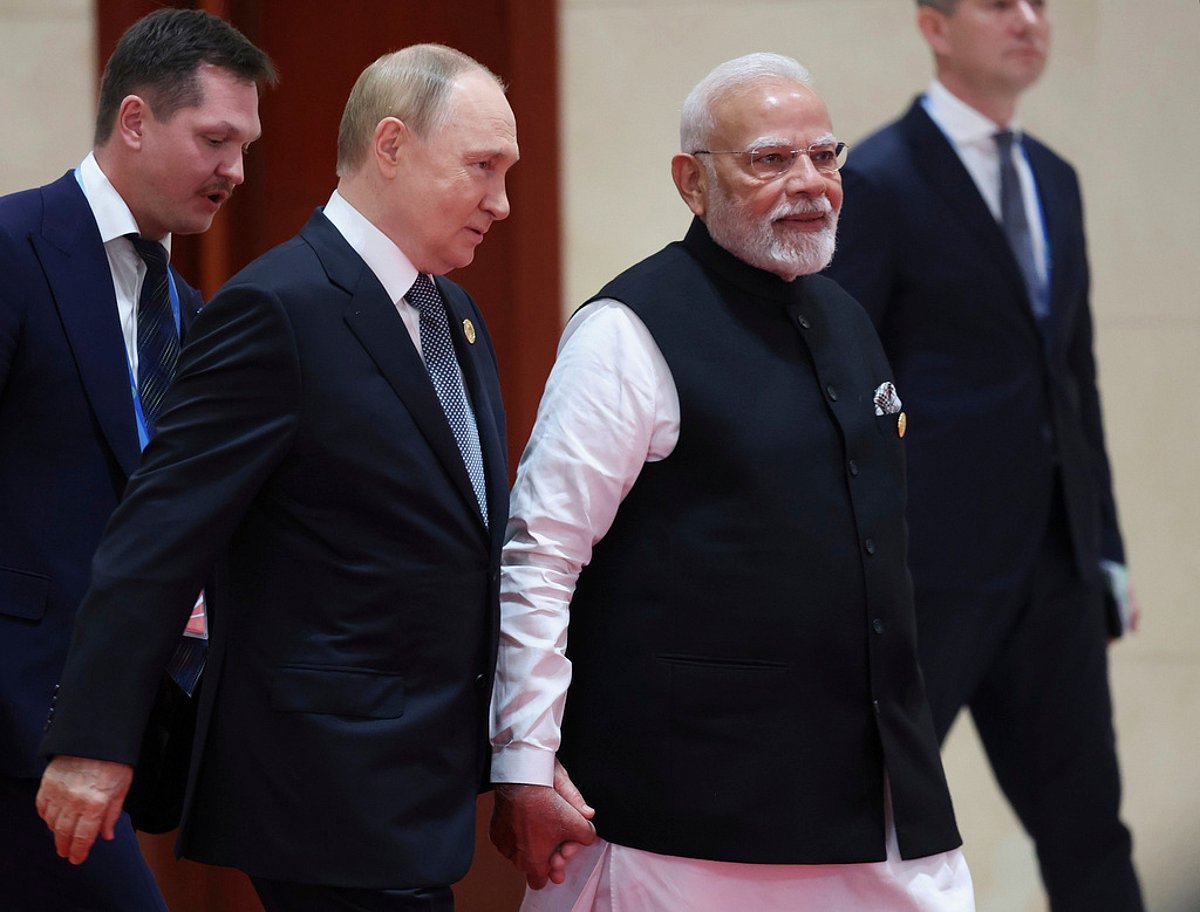
Moments before the leaders lined up for a group photo, Modi was seen clasping Putin’s hand with the gusto of an old friend, bursting into his trademark hearty laughter. The moment was infectious as Putin grinned and chuckled, while Chinese President Xi Jinping gave a measured smile. The trio, ringed by watchful interlocuters, chatted animatedly for a few seconds.
Travel Guides & Articles
India’s Cultural Wanderlust Is Redefining Travel In 2025 | Travel News
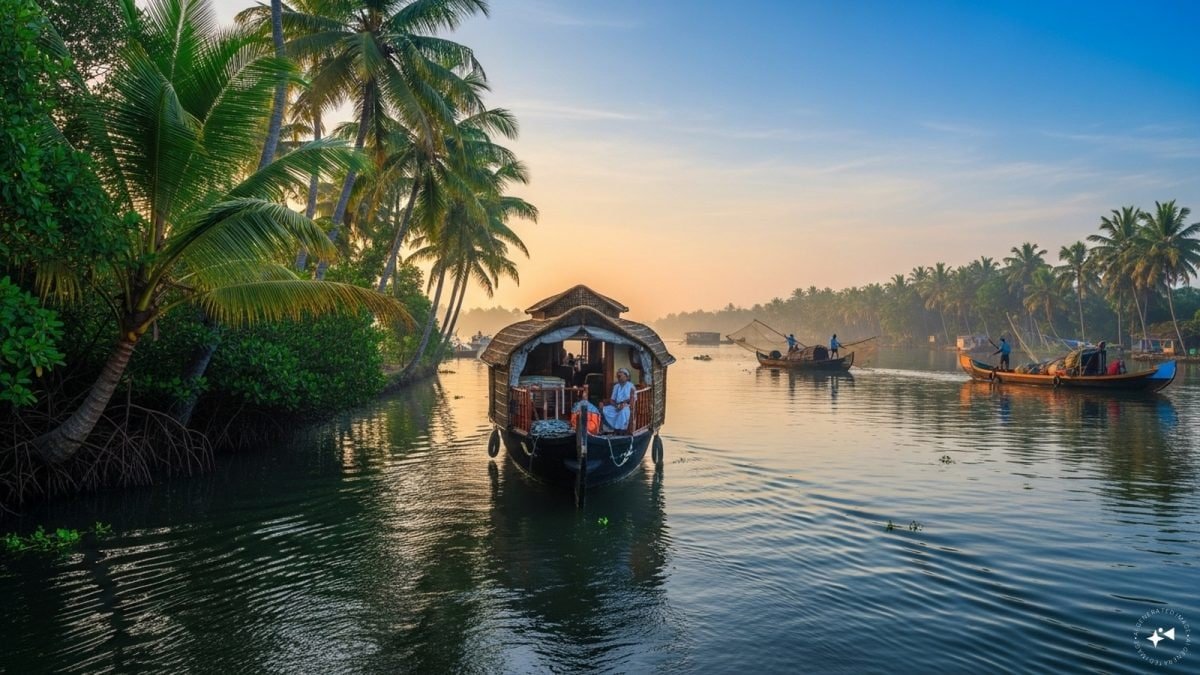
Last Updated:
Eight in ten Indians now say they plan their trips around cultural experiences, be it grand festivals, local traditions, or ancient heritage, says report.
From Kerala’s backwaters and Ayurveda to the Northeast’s tribal festivals, travellers are weaving deeper meaning into their journeys
For decades, Indian holidays often meant quick getaways, famous monuments, or beaches with family. But 2025 is bringing a different mood to the way India travels. According to Skyscanner’s latest Cultural Tourism report, culture has shifted from being a backdrop to becoming the very purpose of a journey. Eight in ten Indians now say they plan their trips around cultural experiences, be it grand festivals, local traditions, or ancient heritage.
Festivals as the New Compass
More than half of Indian travellers (55%) have attended cultural festivals or fairs, and a staggering 76% have even altered travel plans just to witness a cultural spectacle. This year, Durga Puja in Kolkata (53%), Lathmar Holi in Barsana (51%), and Onam in Kerala (35%) top the must-see list. Beyond festivals, historical cities like Jaipur and Varanasi, and UNESCO World Heritage sites such as Hampi and the Taj Mahal, continue to pull in culture-curious Indians. Skyscanner data even shows that searches for Varanasi have increased by 76% in 2025 compared to the previous year.
Hidden Gems Take Centre Stage
It’s not just the big names that are drawing attention. An overwhelming 93% of travellers said they would consider lesser-known destinations if they offered authentic cultural experiences. This reflects a growing appetite for hidden gems: villages, towns, and communities where traditions thrive away from crowded tourist trails. One way to explore these hidden treasures is by using Skyscanner’s ‘Explore Everywhere’ search feature, with filter options like ‘underrated destinations’ and ‘art and culture’ to make it easier than ever to find the perfect spot for a unique tradition-rich escape.
Travel for Connection And Meaning
“Indian travellers are moving beyond holidays taken only for leisure. The growing quest for depth has given rise to a new archetype, the culture-curious traveller, one who seeks knowledge, connection, and fulfilment,” said Neel Ghose, Skyscanner Travel Trends and Destinations Expert. “For them, success is measured in stories carried home that deepen their sense of people and place. Interestingly, our report also highlights that 71% prefer to travel with family, followed by 62% with friends, and 56% with a partner or spouse. This shows travel today is shifting from sights seen, to connections deepened and Skyscanner’s all-in-one app makes it easier and more affordable to plan those meaningful journeys.”
From Observing to Immersing
The new cultural traveller doesn’t want to just watch; they want to participate. Four in ten want to explore heritage villages or eco-cultural communities, while 38% are keen on culinary trails that reveal the roots of local cuisines. As Dr. Aditi Rawat of Pahle India Foundation puts it, “Cultural tourism is fast becoming a defining lens through which Indian travellers experience their country and the world. The trend is moving towards combining cultural discovery with comfort, luxury, and leisure, a blend that encourages longer stays and deeper engagement. Catalysed by rising accessibility, robust infrastructure, and digital connectivity, it is reshaping travel from passive sightseeing to immersive storytelling, where visitors engage with living heritage, traditions, and narratives that define each destination.”
Safety, Planning, and Smart Hacks
Practicality, of course, remains key. Safety ranks as the top consideration (45%) when choosing a cultural trip, followed by authenticity (33%) and seasonality (31%). Most travellers start planning one to two months in advance, leaning on social media (45%), friends and family (39%), and apps like Skyscanner (27%) for inspiration. And when it comes to booking, value matters! 60% say knowing the cheapest time to fly during a festival is their most helpful hack.
To further assist Indians in charting their journeys, Neel Ghose added, “For travellers seeking inspiration, describing your ideal getaway on Skyscanner’s app-only AI feature, Savvy Search can help uncover temple cities, native lands, royal palaces, and more. The tool curates a list of destinations based on the prompts, directing you to Skyscanner’s flight search, letting you compare the best prices. And, when it comes to planning, for those looking to make the most of their holiday around a festival, a simple hack is to use the ‘Whole Month’ view to spot the cheapest days to fly around the date! Smart planning choices like these can help unlock cultural experiences without breaking the bank, letting you create memories and returning home with learnings that last a lifetime.”
A Cultural Wave Shaping Tourism’s Future
What’s clear is that cultural curiosity isn’t just a passing trend; it’s reshaping Indian tourism itself. From Kerala’s backwaters and Ayurveda to the Northeast’s tribal festivals, travellers are weaving deeper meaning into their journeys. Supported by government initiatives such as Dekho Apna Desh and Swadesh Darshan 2.0, cultural tourism is becoming both an economic driver and a custodian of India’s diverse identity. As Dr. Aditi Rawat notes, “It is revitalising economies, positioning diversity as a global asset, and turning sites and practices into hubs that attract global visitors, empower local communities, and shape the future of India’s tourism economy.”
Our life needs a bit of style to get the perfect zing in the daily routine. News18 Lifestyle is one-stop destination for everything you need to know about the world of fashion, food, health, travel, relationshi…Read More
Our life needs a bit of style to get the perfect zing in the daily routine. News18 Lifestyle is one-stop destination for everything you need to know about the world of fashion, food, health, travel, relationshi… Read More
Travel Guides & Articles
Millennials and Gen Z make culture the hottest travel trend of 2025
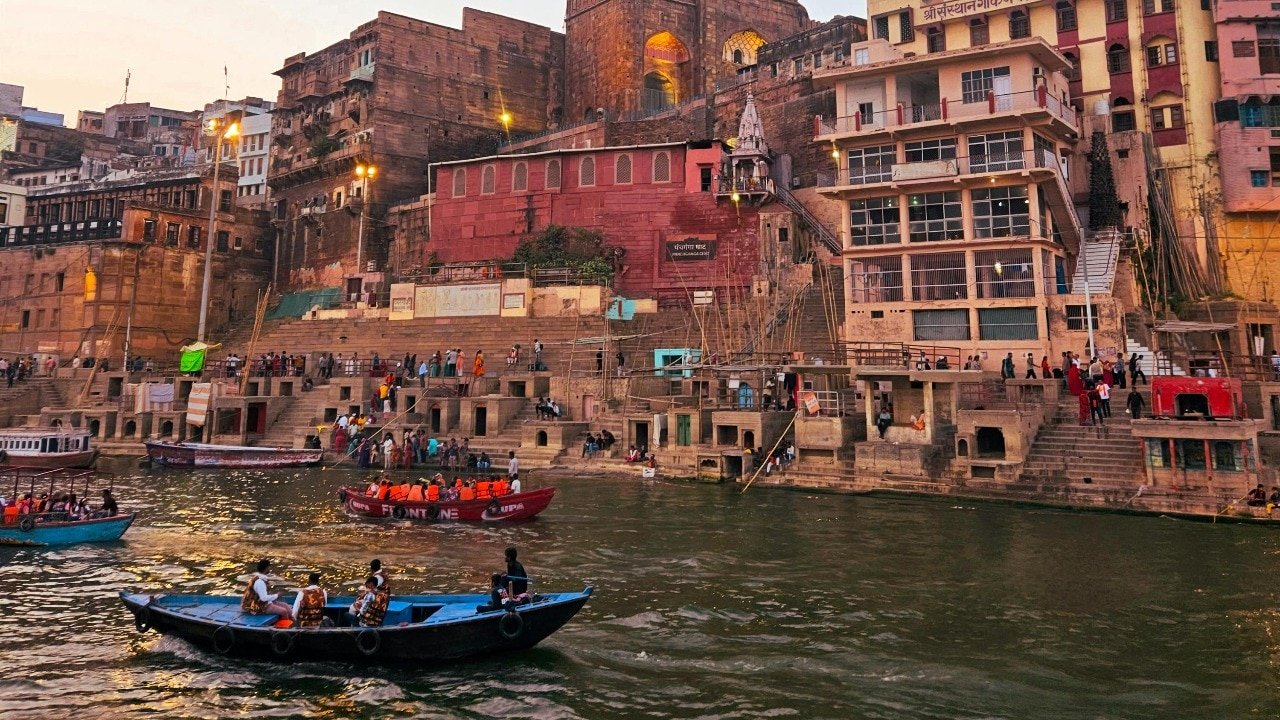
The new age of travelling is shifting landscapes one trip at a time. It’s beyond just regular sightseeing. Today, it’s staycations, wellness retreats, luxury escapes, and right now it’s all about soaking in culture. Why? Because experience value has found its place at the core.
Cultural tourism is making strides and Indian travellers are totally on board. Around 82 per cent of Indian travellers are looking for destinations that offer authentic local heritage, traditions, and experiences, according to the latest Cultural Tourism Report by Skyscanner.
In today’s era, people are not only keeping a travel budget aside but also curating itineraries specifically around the festive seasons. In fact, seven in ten travellers say they are open to exploring both local and international cultural diversity.
“Indian travellers are moving beyond holidays taken only for leisure. The growing quest for depth has given rise to a new archetype – the culture-curious traveller – one who seeks knowledge, connection and fulfilment,” says Neel Ghose, Skyscanner travel trends and destinations expert.
Festive first travel
Celebrating festivals is no longer a side activity. It’s becoming the main travel plan.
76 per cent of Indian travellers have altered their plans to attend a cultural event. And the hottest draws? Kolkata’s Durga Puja (53 per cent), Lathmar Holi in Barsana (51 per cent), and Onam in Kerala (35 per cent). For younger travellers, it’s about dancing, feasting, celebrating rather than just being passive observers.
Almost 55 per cent of Indian travellers have attended local festivals, fairs, or cultural events, the survey shows. And where is the bandwagon heading? Varanasi secures the top spot.
Interestingly, heritage cities are seeing renewed love. Kashi or Varanasi, one of the oldest Indian cities that brims with culture, heritage and traditions, has witnessed a 76 per cent jump in searches for 2025, followed by Jaipur, Agra, and Hampi.
Another growing category is the intrigue of the offbeat. A striking 93 per cent of travellers want to explore underrated destinations – tea festivals in Assam, tribal gatherings in Arunachal, or local heritage in Kerala. These offbeat spots are where authenticity thrives away from the commercialised masses.
Who are the trendsetters?
There are no brownie points for guessing who is leading this change – Millennials (84 per cent) followed by Gen Z (80 per cent).
At a time when travel trends are changing at lightening speed, solo travel is lowkey last season! It may have been the hype once, but family-first is back (fam jams for the win). 71 per cent prefer travelling with family, 62 per cent with friends, and 56 per cent with a partner.
And as this cultural wave builds, patterns are clear. Nearly four in ten want to explore heritage villages or eco-cultural communities, while 38 per cent are drawn to culinary trails revealing the historic roots of local cuisines. Dr. Aditi Rawat, associate fellow, Pahle India Foundation, explains that cultural tourism is evolving into “immersive storytelling,” blending comfort and discovery for longer, more meaningful stays.
Experience value remains the marker of success and 39 per cent of travellers consider a trip meaningful only if they return home having learnt something new about the place or its people.
Gathering anecdotes and lifetime experiences is all good, but before that comes the important yet boring part – planning. And the survey emphasises how this digitally driven age holds safety and smart planning at the centre.
Safety ranks as the top priority for 45 per cent of cultural tourists, followed by authenticity and timing. Most travellers start planning one to two months in advance, inspired by social media, family recommendations, and apps too.
Travel in 2025 is changing. While films like Zindagei Na Milegi Dobara gave us La Tomatina dreams, Millennials and Gen Z are all set to check off the bucket list with festivals and heritage closer to home.
– Ends
-

 Business3 days ago
Business3 days agoThe Guardian view on Trump and the Fed: independence is no substitute for accountability | Editorial
-
Tools & Platforms3 weeks ago
Building Trust in Military AI Starts with Opening the Black Box – War on the Rocks
-

 Ethics & Policy1 month ago
Ethics & Policy1 month agoSDAIA Supports Saudi Arabia’s Leadership in Shaping Global AI Ethics, Policy, and Research – وكالة الأنباء السعودية
-

 Events & Conferences3 months ago
Events & Conferences3 months agoJourney to 1000 models: Scaling Instagram’s recommendation system
-

 Jobs & Careers2 months ago
Jobs & Careers2 months agoMumbai-based Perplexity Alternative Has 60k+ Users Without Funding
-

 Funding & Business2 months ago
Funding & Business2 months agoKayak and Expedia race to build AI travel agents that turn social posts into itineraries
-

 Education2 months ago
Education2 months agoVEX Robotics launches AI-powered classroom robotics system
-

 Podcasts & Talks2 months ago
Podcasts & Talks2 months agoHappy 4th of July! 🎆 Made with Veo 3 in Gemini
-

 Podcasts & Talks2 months ago
Podcasts & Talks2 months agoOpenAI 🤝 @teamganassi
-

 Mergers & Acquisitions2 months ago
Mergers & Acquisitions2 months agoDonald Trump suggests US government review subsidies to Elon Musk’s companies


